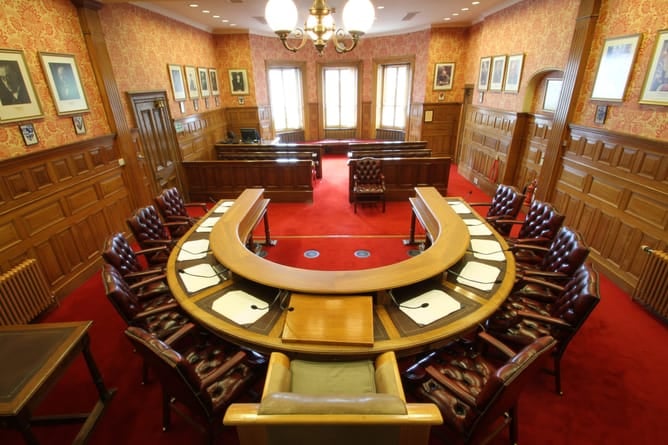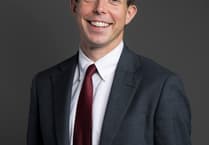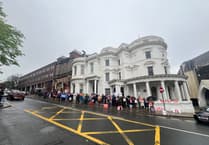There has been quite some discussion on the subject of the Legislative Council, its membership and functions lately so thanks to Clerk of Tynwald Jonathan King for providing me with links to background information on the subject all of which are publicly available.
I have also sourced information from Wikipedia and from Professor Peter Edge, Professor of Law at Oxford.
The original function of the Legislative Council was executive (giving advice to the Lieutenant Governor-or Lords of Mann prior to revestment)and its membership was entirely appointed.
The membership previously comprised the Lieutenant Governor, Bishop of Sodor and Man, First Deemster, Second Deemster, Clerk of the Rolls (position amalgamated with the First Deemster in 1918), Attorney General, Receiver General, Water Baliff (position dissolved 1885), Archdeacon of Sodor and Man, Vicar General of Sodor and Man (at various times there were two of these).
Historically the ‘comptroller’ (a position sometimes held together with another office such as that of Reciever General) and an ‘Archdeacon’s Official’ were also members. This is before the Reformation the Council included other prelates, such as the Abbot of Rushen.
The first seven were Crown appointments and the last two appointments by the Bishop.
Reforms were slowly made to reduce the number of judicial and religious appointments and these members were slowly replaced by indirectly elected members.
In 1917, the Judicature (Amendment) Act introduced by the Legislative Council removed Clerk of the Rolls from the composition of the Council.
In 1919,the Archdeacon; the Vicar General; and the Receiver General were removed as ex-officio members by the Isle of Man Constitution Amendment Act and the composition was further altered by the appointment by the Lieutenant Governor of two members and four members elected by the House of Keys.
Forty two years later in 1961 there was an increase from four to five elected members.
1965 saw the Second Deemster losing his seat and in 1969 the Isle of Man Constitution Act removed the two appointed members of the Legislative Council and provided for seven members elected by the Keys.
In 1971 the Attorney General’s vote was removed and he no longer counted towards a quorum.
1975 saw the First Deemster losing his seat in Council thus providing for eight members to be elected by the Keys.
In 1980 the Lieutenant Governor was removed as presiding officer and replaced by President of Tynwald voted on by members.
The Governor continued to preside over the joint sittings of Tynwald until 1990 when Sir Charles Kerruish was elected to the role of president, holding it until his retirement in 2000.
The Constitution Act 1919 had been the first substantial reform of the Legislative Council from the Baronial system.
Candidates for election or appointment had to be male, no less than 21 years of age and resident in the island.
The bill was first introduced to the House of Keys in January 1914, following the reports of a House of Keys committee on constitutional reform and the MacDonell committee.
When it reached the Legislative Council in April 1914 it was rejected outright.
After a conference with the Keys and in consultation with the UK Home Office, the bill was reintroduced in June 1914, but further debate was postponed until the end of the First World War.
The bill finally came into effect on October 7, 1919 having been steered through the House of Keys by William Crennell, MHK for Ramsey, who was also responsible for the legislation that introduced universal suffrage.
Women only became eligible to stand for election to the Council in 1961.
The first female member of the Keys had been Marion Shimmin of the Manx Labour Party representing Peel who had been elected in 1933.
The first female member of the Legislative Council was Betty Hanson in 1982.
I served for a time with her and she had previously been one of my school teachers.
In 1881 Tynwald became the first national parliament to provide the opportunity for property owning females to vote in a General Election and the first election giving the vote to all men and women living in the Isle of Man took place in September 1919.
Before 1866 the House of Keys had been a self-electing body.
Whenever a seat became vacant, the Keys selected two candidates to present to the Governor who chose one of them to take up the seat
Membership was for life or until the member decided to retire from the position.
The debate regarding the position of the Bishop in Tynwald is not a new topic thought up by members of the current administration, indeed strong proponent for democratic reform, Victor Kneale in 1982, argued that the Bishop should remain on an otherwise directly-elected Legislative Council, albeit without a vote.
The Lord Lisvane report, ironically from my perspective authored by a member of an even less democratic institution proposed the retention of the Bishop as a Tynwald member.
However, he also included a proposal that ‘the Bishop should not retain his vote’.
When the Lisvane report was discussed in Tynwald in June 2017 that carried in the House of Keys by 15 votes to nine but rejected by the Legislative Council by a majority of five to two.
Peter Edge and Augur Pearce had carried out a two-year study into the work and influence of the Bishop in debates.
They concluded as an internal matter that a change to voting status would make much less difference in Tynwald than his removal from sitting in Tynwald.
Professor Edge also stated: ‘We do not need to look very far afield to find a Crown Dependency with a Church of England officer who sits in the Legislature as of right now but does not vote.
‘The Dean of Jersey sits in the States of Jersey ex-officio and contributes to debates, but does not vote.’
All my political life I believed that the Legislative Council should be directly elected by the public on an ‘all island’ basis to concentrate on all the big international issues facing our island.
I put that suggestion to Lisvane but it gathered no support from him.
I am from time to time asked why therefore I allowed my name to go forward for one term in the upper house.
It was quite straightforward in my eyes. A number of long-serving members were either going to lose their seats or retire at the 2016 election and if I could help any of the newly elected members find their feet I thought that may be helpful. However, having their own democratic mandates most did their own thing which is fine of course.
Also if we were to achieve any redress of the democratic deficit we needed members of the Legislative Council to play their part and as always there was little appetite within the Council for progress in that area.
Others, usually in the House of Keys, have since tried without success before and since.
Thank goodness I remained chair of the social affairs policy review committee where, together with others, I was able to put right some long-standing injustices.
Like the House of Keys, the Legislative Council more fairly represents the make up of our island community today.




